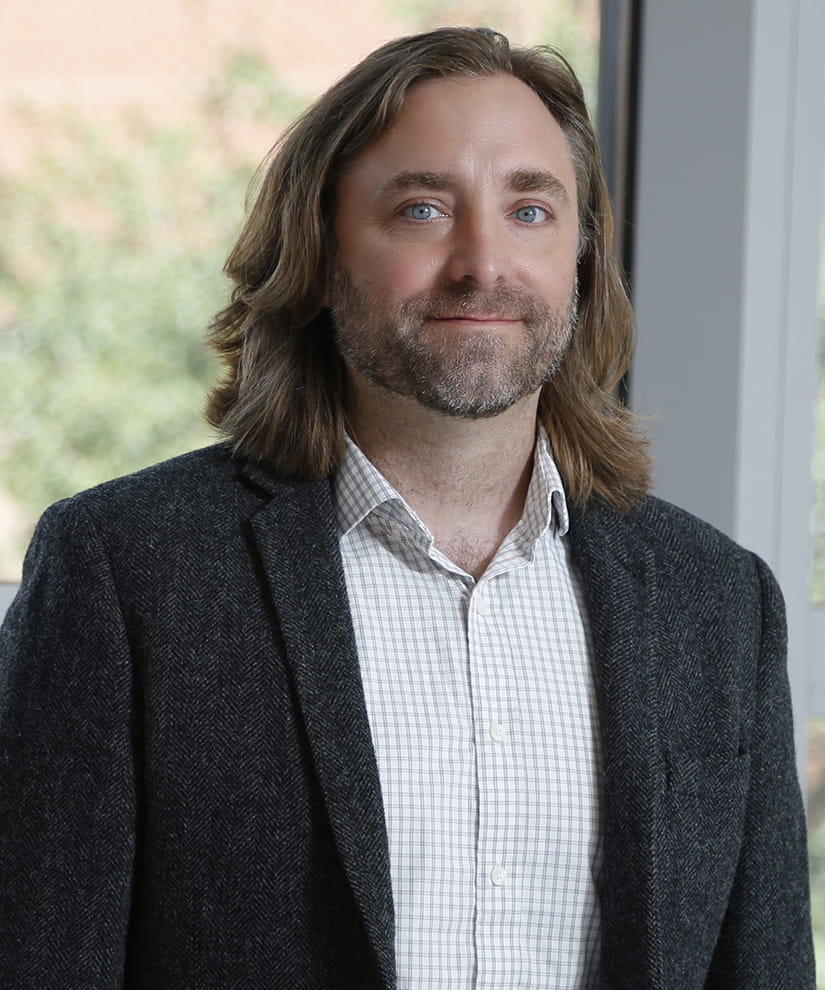 Overview
Overview
Associate Professor
535A Atwell Hall
453 W. 10th Ave.
Columbus OH 43210
Phone: (614) 366-7667
Email: nicholas.funderburg@osumc.edu
Primary Professional Areas of Interest
Research Focus
Individuals infected with the human immunodeficiency virus (HIV) may be at greater risk for cardiovascular disease than HIV-uninfected individuals. Markers of inflammation, immune activation, and coagulation are associated with mortality, HIV disease progression, vascular disease, and diabetes within persons infected with HIV; yet, the drivers of increased inflammation and cardiovascular risk in HIV disease remain unclear.In order to answer clinically relevant basic research questions, and as clinical and laboratory researchers are growing farther and farther apart with increasing specialization, there will be a growing and compelling need for translational researchers who can bridge the gap between the bench and the clinic. Dr. Funderburg's experience in a top notch translational research team has both inspired and prepared him for this career direction. Dr. Funderburg's research training has provided him with an excellent foundation in laboratory techniques and a solid understanding of HIV immunology and the role of the innate immune system in cardiovascular disease pathogenesis.
The Funderburg Lab is involved in the AIDS Clinical Trials Group (ACTG), and has worked on several national clinical trials aimed at reducing chronic immune activation and inflammation in HIV-infected patients (ACTG A5248, A5331, A5275, A5296, among others); and the Funderburg lab has also contributed to the highly successful single site trial (SATURN-HIV), led by Dr. Grace McComsey at Case Western Reserve University, that explored the immune-modulatory effects of rosuvastatin on ART treated HIV-infected patients. Overall, the goal of the Funderburg lab is to perform clinically relevant research and to train translational scientists capable of bridging the gap between the lab and the clinic.
- Monocyte/macrophage activation in HIV disease and cardiovascular disease.
- Identification of the contributors and mechanisms behind inflammation and immune activation in treated HIV infection.
- Investigating the bidirectional relationship between coagulation and inflammation.
Recent Research
Lipid Abnormalities and Inflammation in HIV Infection, NT Funderburg, NN Mehta. Current HIV/AIDS Reports, 1-8Changes in oxidized lipids drive the improvement in monocyte activation and vascular disease after statin therapy in HIV. CO Hileman, R Turner, NT Funderburg, RD Semba, GA McComsey AIDS 30 (1), 65-73
Oxidized LDL levels are increased in HIV infection and may drive monocyte activation DA Zidar, S Juchnowski, B Ferrari, B Clagett, HA Pilch-Cooper, S Rose, B. Rodriguez, G.A. McComsey, S. F. Sieg, N.N. Mehta, M.M. Lederman, N.T. Funderburg JAIDS Journal of Acquired Immune Deficiency Syndromes 69 (2), 154-160
Recent Presentations
N. Funderburg Clagett, B. Xu, D. Playford, M. Andrade, A. Kuritzkes, D. Lederman, M.L. Mehta, N.N. Treatment of HIV Disease with Raltegravir Improves HDL Composition and Function, but increases LDL levels 17th International Workshop on Co-morbidities and Adverse Drug Reactions in HIV Barcelona
G.A. McComsey, N. Funderburg, M. Kulkarni, H. Liu, J. Dinoso, A. Cheng, S. McCallister, M. Fordyce, M. Das. “Equivalent Decline in Inflammation Markers with Tenofovir Alafenamide & Tenofovir DF” Conference on Retroviruses and Opportunistic Infections (CROI) Boston, MA February 2016
M. Kulkarni, T. Amburgy, C. Maierhofer, A. Norris Turner, J.A. Bazan, S.L. Koletar, N.T. Funderburg “Expression of LFA-1 is Increased on Monocytes from HIV-infected Patients.” Keystone Conference on HIV Persistence March 2016
Courses Taught
- MLS 5400 Molecular Techniques in Medical Laboratory Science
- MLS 5405 Molecular Techniques in Medical Laboratory Science Laboratory
- MLS 5200 Immunology
Education
- 2002: B.S., Biology, Virginia Polytechnic Institute and State University
- 2007: Ph.D., Molecular and Microbiology, Case Western Reserve University
